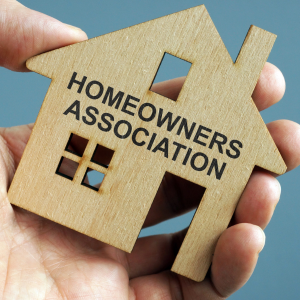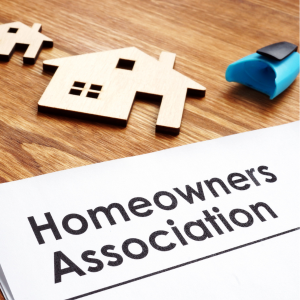
At closing in Minnesota, it’s crucial to understand who pays the HOA fees. Typically, these costs can vary, with the seller often covering them, but specifics depend on the transaction agreement.
Who Pays HOA Fees at Closing in Minnesota? A Comprehensive Guide
When you buy or sell a home in Minnesota, you need to know who pays the HOA fees. It can help to understand your financial responsibilities before the closing, whether you are buying or selling.
Understanding HOA Fees in Minnesota
Minnesota homeowners pay customary HOA dues. These fees fund communal standard space maintenance. The fees maintain parks, clubhouses, and pools, improving the region. These groups help Minnesotans maintain property values and enhance their quality of life.
Types of HOA Fees in Minnesota

Homeowners in Minnesota might come across several types of HOA fees:
- Regular Assessments: These are standard fees collected once a month, three times a year, or annually to cover the costs of operations and maintenance.
- Special Assessments: Charged for unforeseen repairs or significant improvements that exceed the standard budget.
- Transfer Fees: Collected during the sale of a property, usually paid by the buyer to cover administrative costs for updating records.
Knowing these different types of fees will assist you in managing the financial aspects of buying or selling a home within an HOA community.
Factors Affecting HOA Fee Amounts in Minnesota
In Minnesota, HOA dues might vary significantly for the following reasons:
- Size of the Community: Fees are usually higher in bigger communities because they have more services and infrastructure.
- Amenities Offered: Neighborhoods with luxurious amenities like pools and fitness centers usually have higher fees.
- Budget and Expenses: The HOA’s annual budget establishes fees for scheduled services, maintenance, and future project reserves.
Considering these factors can help potential homeowners understand possible costs and choose communities that match their budget.
Understanding HOA fees, their kinds, and the elements affecting them helps Minnesota real estate market buyers and sellers create educated choices. Whether you are going through a transaction or simply interested in homeowner obligations, this book offers straightforward financial information about living in an HOA-managed community. We’ll guide you through HOA fees and ensure a smooth home sale—here’s how Henry Home Buyer can assist.
HOA Fees and the Minnesota Closing Process
A flawless real estate transaction, whether buying or selling a property in Minnesota, depends on knowledge of the closing procedure. A key component of this procedure is Homeowners Association (HOA) fees. This paper addresses how HOA fees affect the Minnesota closing procedure.
HOA Fee Payment Responsibility at Closing
In a typical Minnesota real estate transaction, deciding who pays the HOA fees at closing can be confusing. Generally, buyers and sellers share this responsibility based on when the payments are due and the agreements made during the sale.
- Sellers are usually responsible for any unpaid HOA fees up to the day of closing. Setting up these dues is essential to avoid legal problems.
- Buyers will be responsible for HOA fees after closing, ensuring they meet their new community obligations.
Knowing your financial duties helps prevent surprises during the closing process.
Negotiating HOA Fees During Closing
During a real estate transaction, buyers and sellers can discuss who pays the HOA fees in the closing contract. Here are several strategies:
- Negotiation Terms: Buyers can ask sellers to cover some fees as part of the purchase agreement.
- Compromised: Sellers may pay part of the fees to advance the transaction.
- Clarification: Both parties should clearly state who pays what in the sales contract to avoid future disputes.
Effective negotiations ensure everyone knows their roles, which can ease financial burdens.
Consequences of Unpaid HOA Fees at Closing
There could be significant issues if overdue HOA dues are ignored at closing:
- Liens: The HOA can place a lien on the property, complicating the transaction and possibly causing delays.
- Legal Issues: Unpaid fees might result in legal battles between buyers, sellers, and the HOA, potentially ending up in court.
- Defaults: Buyers who inherit unpaid fees may be deemed in default, which could impact their financial situation and relationship with the HOA.
Taking care of any outstanding HOA fees during the closing process is essential to avoid these issues and ensure a smooth property transfer. Cash home buyers in Anoka and nearby Minnesota cities are ready to assist you.
Legal Aspects of HOA Fees in Minnesota
Minnesota Homeowners Association (HOA) costs must be understood legally by homeowners and buyers. Knowing HOA lien rights, state fees, and how to avoid disputes can save time, money, and frustration.
HOA Lien Rights in Minnesota
In Minnesota, HOAs have specific lien rights that property owners need to know. An HOA lien is a legal claim on a homeowner’s property due to unpaid dues. If not addressed, it can lead to foreclosure. Here are some key points:
- Regulations: HOAs in Minnesota must follow state regulations when imposing liens. They must notify homeowners about delinquency and the chance of a lien.
- Foreclosure: If fees are unpaid, the association can legally foreclose on the property to recover the owed amount. Homeowners need to understand their rights and the foreclosure process.
Always ensure you get communications from your HOA and deal with payment issues quickly.

Minnesota Laws Governing HOA Fees
Minnesota has legislation governing HOA fees and operations. These regulations balance power between associations and homeowners, ensuring fair conduct.
- Statutory Regulations: The state’s laws dictate how HOAs work, including fee assessments and budget approvals. Associations must stick to these rules, which protect homeowners’ rights.
- Implications for Real Estate: If you purchase or sell real estate within a HOA, it is essential to be aware of these laws. They impact things like fee negotiations and disclosure obligations in real estate transactions.
Homeowners should learn about relevant state laws and think about consulting legal professionals for detailed advice.
Protecting Yourself from HOA Fee Disputes
Disputes over HOA costs occur, but homeowners should take precautions to protect themselves.
- Know Your Rights: Understand your rights as outlined in the HOA’s governing documents and Minnesota state laws. This knowledge can be helpful in negotiations.
- Communication: Sustain transparent dialogue with your association. This can clarify numerous misconceptions and avert the escalation of conflicts.
- Legal Advice: If negotiations don’t work, seeking legal advice from someone experienced in Minnesota HOA law can help you move forward.
By following these steps, homeowners can reduce potential conflicts and interact better with their HOA, while also understanding closing costs without a real estate professional.
For more insights, contact Henry Home Buyer for advice and support to navigate these complex issues.
Resources and Expert Advice on Minnesota HOA Fees
Finding Information on Minnesota HOA Regulations
Understanding the regulations is essential when dealing with Minnesota Homeowners Associations (HOAs). Start by researching Minnesota’s specific HOA rules. You can find these on state government websites or at local county offices. These sources provide essential information about HOA governance. This helps you know your rights and responsibilities as a homeowner. You might want to talk to legal experts focusing on real estate law in Minnesota to get more details.
Working with Professionals on HOA Fee Issues
Dealing with HOA fee issues can be tough, but the right professionals can help make it easier. Real estate professionals who know Minnesota properties can offer helpful advice on deals involving HOAs. They can explain how HOA fees affect finances and ensure all legal aspects are handled during property transactions. Additionally, legal experts specializing in HOA issues can offer guidance in resolving any disputes.
Avoiding HOA Fee Problems
Preventing difficulties with HOA fees requires taking proactive steps. Before purchasing a property, understand the HOA’s regulations and fees to avoid future issues. Communicate openly with HOA boards and other homeowners to be informed of any changes in fees or policy. Planning, such as conserving money for unexpected fee hikes, might help you avoid financial hardship. If a dispute arises, explore options such as mediation or arbitration for peaceful resolution.
Frequently Asked Questions about HOA Fees in Minnesota
What are the average HOA fees in Minnesota?
The average HOA fees in Minnesota range from $200 to $400 per month. These fees can vary based on location, property size, and amenities. They usually cover landscaping, snow removal, and shared space maintenance. Remember to include these and typical closing costs when budgeting for a new home, as they affect your monthly expenses.
How are prorated HOA fees calculated?
Prorated HOA fees at closing are determined by how long the seller owns the home during the closing month. Here’s how it’s done:

- Find the daily fee: Divide the monthly payment by the number of days.
- Determine the seller’s portion: The number of days the seller holds the house before closing is multiplied by the daily fee.
- Calculate the buyer’s share: Multiply the daily fee by the days after closing.
With this method, the fees are split fairly between the buyers and sellers. Don’t forget that these fees are part of the closing costs, including property taxes and fees for starting the loan.
What should I ask my real estate agent about HOA fees?
Ask your real estate agent before buying a home to understand HOA expenses. Consider these questions:
- What services do the HOA fees cover?
- Are there any planned increases or special assessments?
- Who takes care of common areas and amenities?
- How does the ownership transfer work, and what are the associated fees?
- Are there any legal issues or disputes involving the HOA?
These questions help you understand your financial responsibilities and what the HOA provides. Make sure your home buyer knows the specifics to give you accurate information. Apple Valley cash buyers and nearby Minnesota cities are available to offer deeper insights and support.
FAQs:
Who is responsible for paying HOA fees when closing in Minnesota?
The buyer and seller typically agree to pay HOA fees at closing. Sellers usually pay outstanding bills before closing.
What are typical HOA closing costs in Minnesota?
HOA closing costs in Minnesota vary based on location and HOA rules. Typical costs include transfer fees ranging from $200 to $400. Check with your specific HOA for exact amounts.
How do HOA fees affect the sale price of a home in Minneapolis?
HOA fees affect buyer decisions and sale prices. Reasonable fees don’t alter the home’s market worth, while high fees may repel buyers.
Can HOA fees be negotiated during the sale process in St. Paul?
Yes, HOA fees can sometimes be incorporated into the closing costs. Buyers and sellers can include these fees in the sale price or pay separately.
What happens if there are unpaid HOA fees at closing?
Unpaid HOA fees are usually settled during closing. The seller pays them off or may negotiate with the buyer to cover them. Ensure all dues are addressed to avoid legal issues.
Are HOA transfer fees standard in the Twin Cities area?
Yes, HOA transfer fees are standard in the Twin Cities when a property changes hands. These fees cover administrative tasks related to the transfer and are typically required by the HOA.
What other costs should be considered besides HOA fees when closing on a property?
In addition to HOA fees, consider costs like title insurance, attorney fees, and other closing costs, including taxes, appraisal fees, and lender charges.
How can I ensure a smooth closing process regarding HOA fees?
Communicate clearly with your realtor and the HOA to ensure a smooth process. Get a detailed statement of all outstanding fees and plan to settle these before or at closing.
Key Insights
- In Minnesota, understanding who pays HOA fees at closing is essential. This varies in Minneapolis, St. Paul, and the broader Twin Cities area based on the real estate transaction.
- When buying or selling a property in an HOA, knowing who covers HOA transfer fees and their role in closing costs is key. Buyers and sellers should consult a real estate professional to avoid unexpected expenses.
- Closing costs in Minnesota include title insurance, home buyer commissions, appraisal fees, and taxes. Calculating these accurately is crucial for a smooth closing process.
- Potential buyers should know additional costs, such as escrow fees or reserve funds, particularly in Minneapolis or St. Paul. Understanding these can prevent disputes about who pays the fees at closing.
- Realtors assist homeowners in the complex closing process, including paying off any outstanding dues or special assessments related to HOA fees. This ensures all legal and financial obligations are settled before ownership transfers.
- Knowing who pays the HOA fees in the Twin Cities can significantly impact negotiations between the buyer and seller. Both parties should have clear agreements documented to avoid issues at settlement.
- Legal documents like declarations and bylaws outline responsibilities for HOA fees. Reviewing all documents with professionals is essential for clarity and compliance.
- Understanding the impact of unpaid HOA dues is critical for those in foreclosure, as they can lead to liens against the property. Working with a knowledgeable real estate professional is advisable.
- Home buyers can explain how often HOA fees are due and whether any special assessments apply. These discussions help clarify potential financial commitments for buyers.
- Negotiating who covers the closing costs and HOA transfer fees in Minnesota is common. Both parties should aim for a fair market agreement documented in the purchase contract.
- Before closing, sellers and buyers must review all settlement statements carefully to ensure all fees, including HOA and management company charges, are covered according to the agreement.
- A typical closing involves many steps, and each party must complete its responsibilities, ensuring no outstanding liabilities post-closing. Clear communication and documentation are key.
- Buyers should research average closing costs and consult real estate experts to see if the total aligns with their budget, considering regional differences in Minnesota.
- Knowing all HOA-related costs and keeping them manageable is crucial for a smooth transaction. Both buyers and sellers should work with industry professionals to confidently handle the complexities of real estate transactions.
Ready to sell or have questions? Call us at (612) 430-8822 for a no-obligation offer. Get started today!
